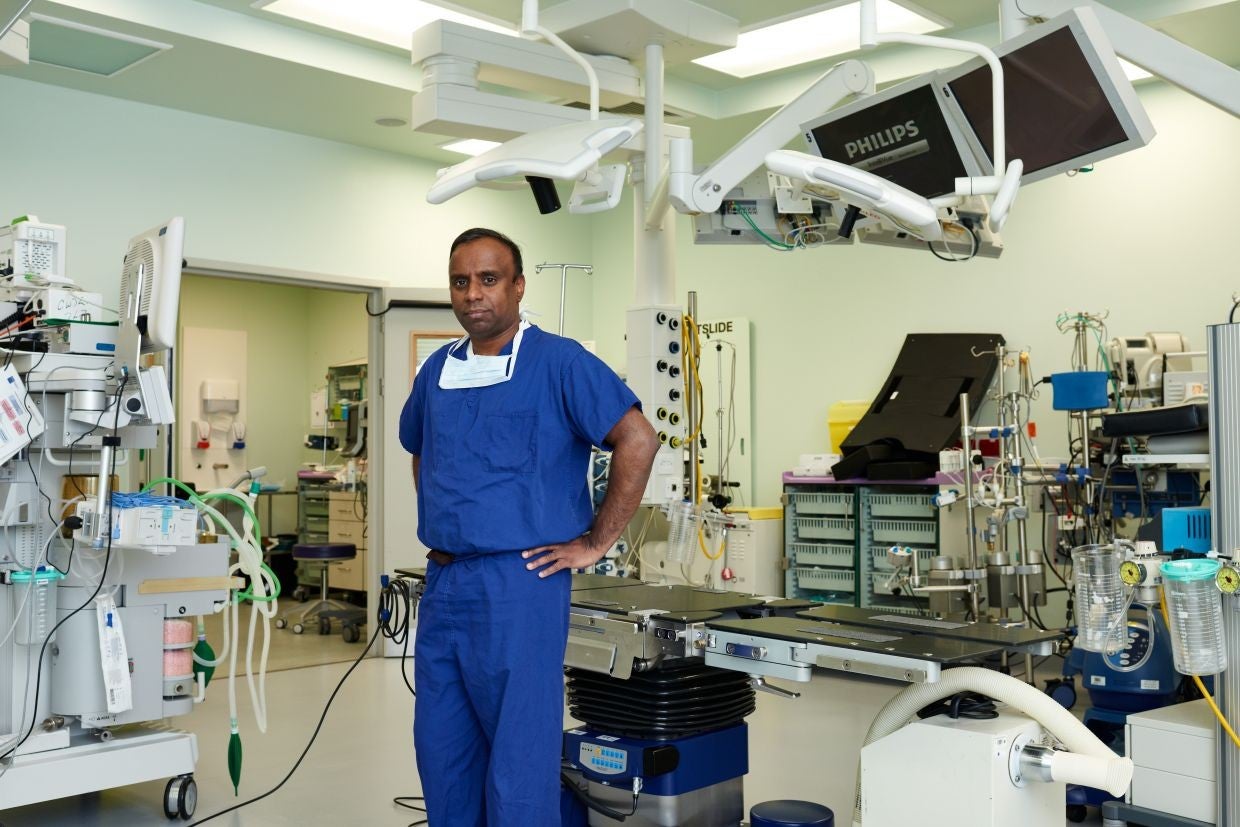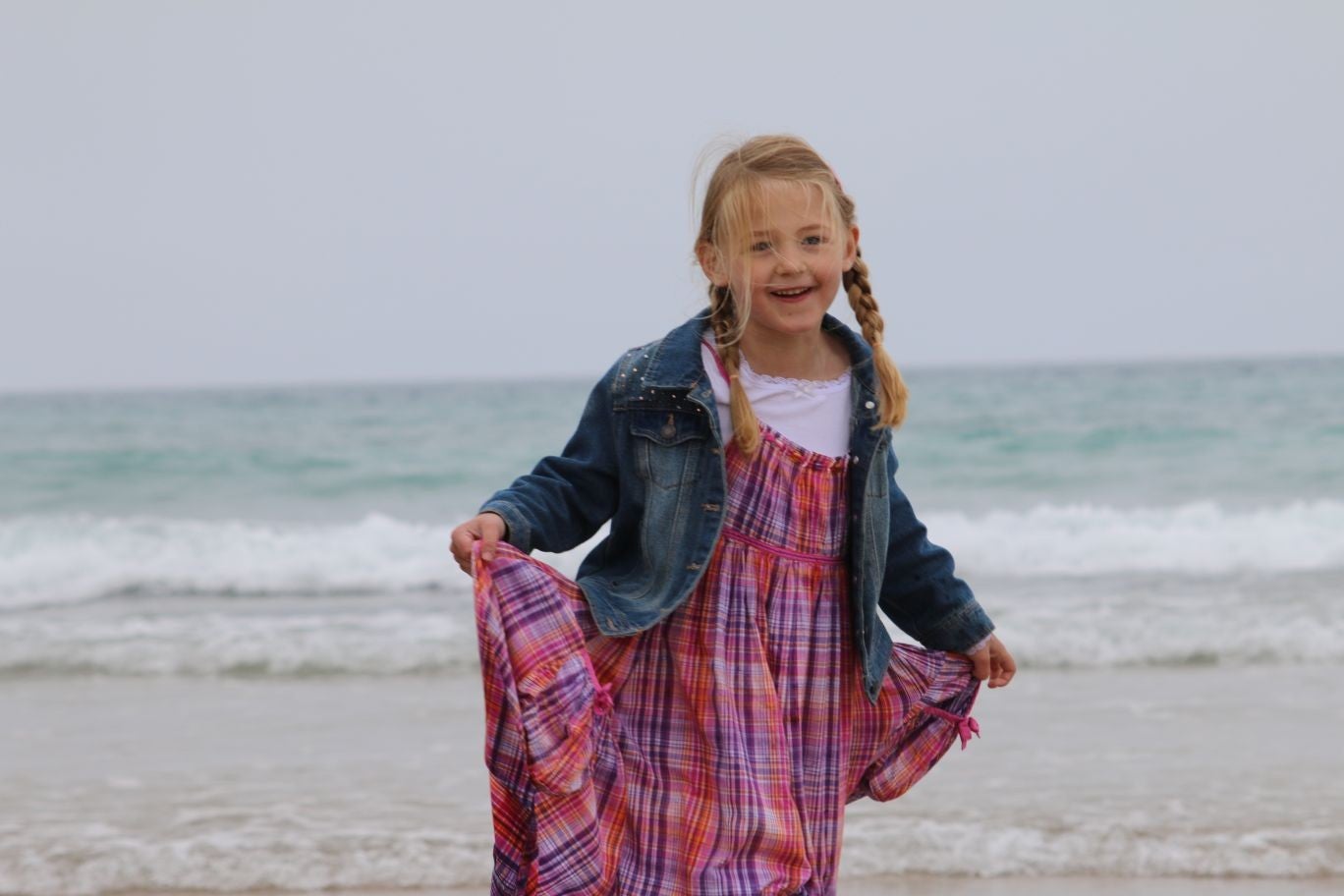How heart transplant surgery changed 10-year-old Hannah's life
Great Ormond Street Hospital leads the world in paediatric heart surgery – but each operation represents a complex journey

Your support helps us to tell the story
From reproductive rights to climate change to Big Tech, The Independent is on the ground when the story is developing. Whether it's investigating the financials of Elon Musk's pro-Trump PAC or producing our latest documentary, 'The A Word', which shines a light on the American women fighting for reproductive rights, we know how important it is to parse out the facts from the messaging.
At such a critical moment in US history, we need reporters on the ground. Your donation allows us to keep sending journalists to speak to both sides of the story.
The Independent is trusted by Americans across the entire political spectrum. And unlike many other quality news outlets, we choose not to lock Americans out of our reporting and analysis with paywalls. We believe quality journalism should be available to everyone, paid for by those who can afford it.
Your support makes all the difference.Two hours into the four-hour operation to give 10-year-old Hannah a new heart, her surgeon was approaching the most critical stage of the procedure. Dr Nagarajan Muthialu had to suture the aorta of her new heart into her chest with only a tiny margin for error, while at the same time ensuring her lungs were not starved of blood and that tiny air bubbles didn’t travel to her brain.
Dr Muthialu, who trained in India before coming to the UK in 1991, had already removed Hannah’s own enlarged and failing heart and the tubing from an artificial heart machine that had been keeping her alive for the past month. “I had to carefully separate all the structures in her chest, but I couldn’t easily differentiate the heart membrane, the cardiac chamber and the blood tubes,” he says.
We were standing outside Theatre Seven at Great Ormond Street Hospital (GOSH) where I had just seen the leading paediatric cardiac unit in the country carry out its 15th heart transplant this year. I can’t say exactly when the procedure was carried out, to protect the donor’s identity, but life outside in London carried on as normal, shoppers and tourists packing the streets, un- aware that a 12-strong medical team had just performed what until two or three decades ago was considered a medical impossibility.
GOSH is home to some of the world’s most experience paediatric surgeons, making Dr Muthialu’s description of Hannah’s surgery – as “one of the most complex” heart transplant he has carried out – all the more impressive. At times, he had just 2mm of space to spare as he stitched in Hannah’s new heart. “I couldn’t risk cutting the nerves, I couldn’t cut the blood tubes and I couldn’t cut the cardiac chamber. It’s a risky procedure and you can imagine how complex it gets.”
Throughout the procedure, up to six hands were inside Hannah’s chest as two surgeons and a trainee registrar removed Hannah’s old heart, disconnected and removed her mechanical Berlin heart and “plumbed in” her new heart. That heart had been removed from an older donor only hours earlier and rushed – on ice in little more than a strong-looking black cool box – to the centre of London and the waiting surgical team.
The first child heart transplant at GOSH was carried out in 1988, but from the inevitable tale of tragedy behind the donor heart to the state-of-the-art heart and lung machine that pumped blood for Hannah during the surgery, there is nothing routine about heart transplantation. Thankfully, though, Hannah is recovering well and despite some complications, which saw her chest remain open with a plastic, heart-shaped cover for two days after surgery, she went home earlier this week.
Hannah first fell ill two years ago, when her parents, Carole and John, noticed she was struggling for breath. A string of visits to her local hospital in west London followed before she was admitted to GOSH.
“She loved kickboxing and swimming,” said her father John, speaking to me only hours before she went under the knife. “And then all of a sudden she couldn’t do those things and was asking to be pushed around in her younger sister’s buggy. It was tough, but we never thought she would need a transplant, she always bounced back after she came to GOSH.”
Hannah had been diagnosed with dilated cardiomyopathy, though, and drugs to support her heart were becoming less and less effective. Doctors soon decided that a new heart would be her only chance of a future.
As John spoke, his daughter was upstairs being prepared for surgery, covered in pipes, tubes and sensors as the surgical team cocooned her in surgical sheets, leaving just her chest exposed. “They tell you that no news is good news, so when you see a doctor you get really scared. It’s like waiting for somebody to announce a judgement,” he said later.
Thankfully, the news brought by Dr Muthialu was good, but only weeks before her surgery her mother Carole glimpsed an alternative future when another little girl on the same ward as Hannah suffered a stroke while waiting for a transplant. She didn’t recover and died, reminding all the other families on the ward that around 30 per cent of children waiting for a new heart don’t make it to a transplant.
“It made me appreciate what a miracle it was that everything was happening for our child,” says Carole. “I heard the other child’s parent crying and it made me thank God that our child has been saved and given this chance.”
Hannah’s parents took comfort in prayer during her operation, but not all families are so composed during the transplant, when the emotional toll can be vast and the wait for news seemingly endless.
“You see marriages fall apart under the strain,” says Laura Fidge, 27, the transplant co-ordinator who managed Hannah’s transplant from the moment the donor team went “knife to skin” on the donor’s chest to Hannah’s return home this week. She says: “You also get some families who have only ever known a sick child. If the child gets better, they don’t know how to cope, while if the child dies they can feel like they have no purpose in life.” Laura’s role on the night of Hannah’s surgery started when she made the first call to Carole and John to break the news that a heart had become available. In the past, she has had to arrange RAF flights to transfer organs, and the weight of what she does clearly weighs on her.
“Heart transplant doesn’t happen enough, and we have children who desperately need hearts and lungs, but it’s also a sad moment because somewhere a child or a young adult has died to make this possible, so when the phone rings there is excitement, but also the knowledge that somewhere someone is going through hell.”
The process for Hannah and her family doesn’t end at transplant, though. Life expectancy after a heart transplant is around 20 years (few patients have a successful second transplant) and Hannah faces a lifetime of medication, but Dr Muthialu says she should have an “otherwise normal life” and that life expectancy for transplant patients is rapidly increasing.
Hannah’s parents don’t know what the future holds, but can draw strength from the other families who have gone before them, including six-year-old Ellie Beale. Ellie underwent a heart transplant in 2011 when she was just two years old, says her mother Deborah, 48. “She does everything you can think of now. She goes swimming, plays tennis and has dance lessons. She has lots of scars, but day to day, she is the most cheerful little girl you can imagine. Knowing how close we came to losing Ellie makes us appreciate every moment we have with her.”
For many parents, the hardest part of the transplant process, aside from the wait during operation, is the months leading up to surgery while their child waits on a ward, hooked up to an artificial heart. That’s why one of the key objectives of The Independent’s Give to GOSH appeal this Christmas is to raise funds to support a 14-bed specialist heart unit that will help Dr Muthialu and his team care for children such as Hannah while they wait for transplant.
Hannah is now back at home, where a new swimming costume is waiting for her once she comes off her powerful post-transplant immunosuppressant drugs in three months time. “Your life can completely change in a moment,” says her mother. “You can be one person and then your life changes and you become something totally different. If you have faith and you believe, there are so many miracles out there.” µ
Hannah’s and her family’s names have been changed to protect patient confidentiality
Life after transplant
Ellie Beale wouldn’t be here if it wasn’t for the new heart she received at Great Ormond Street Hospital (GOSH).
The six-year-old lights up any room she enters, but back in 2011 when she was just two-years-old she needed and new heart and underwent a risky transplant procedure at GOSH.
Like Dr Muthialu's recent heart transplant patient, it was a complex operations and at one stage the surgeon was forced to re-enter her chest to assist the heart after the operation was complete.

Ellie has recovered beautifully though and is now back at school. Her mum Deborah, 48, said: “She does everything you can think of now, she goes swimming, plays tennis, has dance lessons, she does drama. She has a lot of scars, but day-to-day she is the most cheerful little girl you could imagine. There are ups and downs but you wouldn’t know it from looking at her.”
The operation changed Deborah and her husband too she said; “As parents, it has changed us too. Knowing how close we came to losing Ellie, it makes us appreciated every moment we have with her.”
Despite all her operations and check-ups, Ellie still enjoys coming to see the staff at the hospital. Her mum added: “Ellie wouldn’t be alive now if it wasn’t for the generosity of a very brave family and the expertise of the doctors and surgeons at GOSH. We are so grateful that we still have our little girl with us. She embraces life with open arms and enjoys every minute she can.”
Join our commenting forum
Join thought-provoking conversations, follow other Independent readers and see their replies
Comments